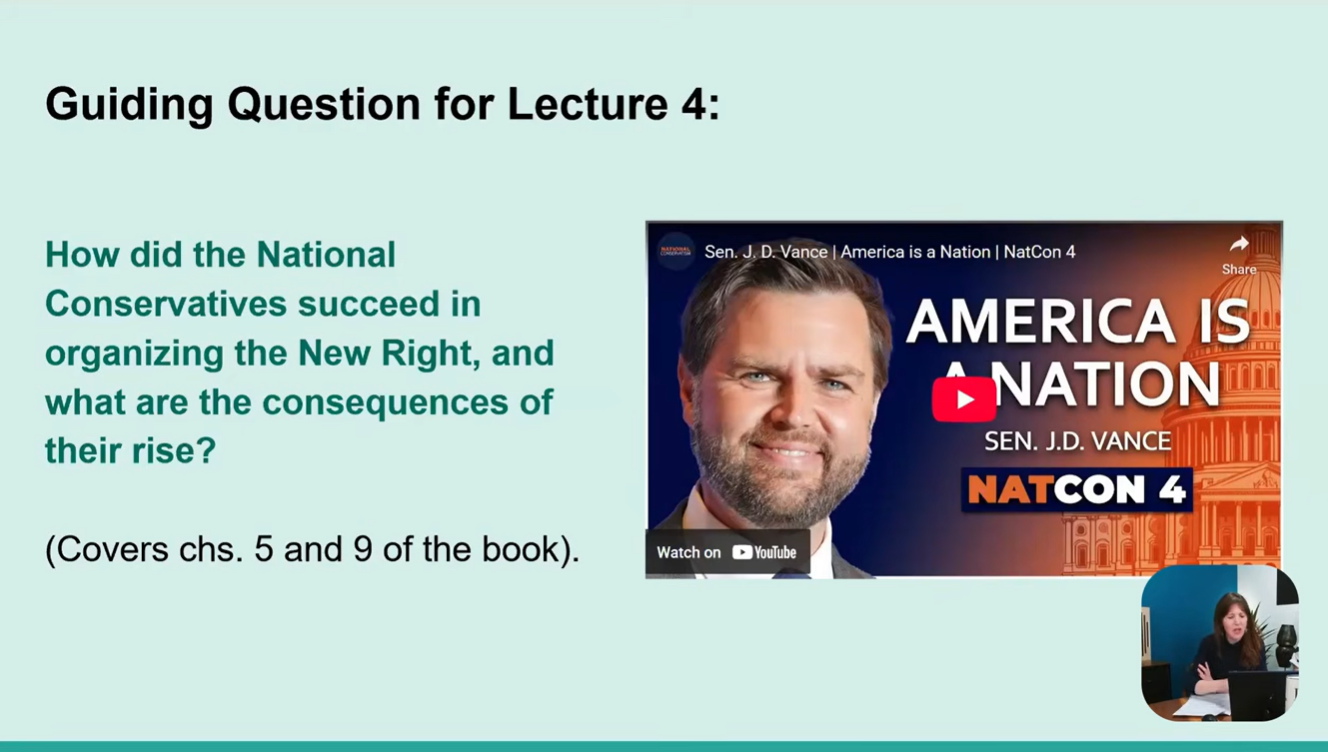The Week That Was: All of Lawfare in One Post
Yesterday, Ben announced the Omphalos Middle East Journalism Program that we are launching in cooperation with our friends at Academic Exchange.
Yesterday, Ben announced the Omphalos Middle East Journalism Program that we are launching in cooperation with our friends at Academic Exchange. There are a lot of great voices out there with significant regional expertise; there are also great journalists back home with in-depth knowledge of and experience in the Middle East, and fabulous ideas for reporting trips or projects of interest to Lawfare readers. Having those folks in mind, we are calling for proposals for reporting projects on the Middle East.
Apropos of the region, Kenneth Pollack discussed the rampant civil wars raging there. The conflicts generate floods of refugees, spawn hordes of terrorists, and frighten the populance, to the point that governing regimes have been able to justify renewed repression (instead of reform) as the only way to deal with the underlying issues. Pollack thus argued that if the United States and the international community do not “act decisively to address the larger problems of the region—particularly the destabilizing effects of multiple civil wars—then these civil wars will only metastasize, spreading instability and chaos and undercutting whatever more modest strategy we try to pursue.”
On to ISIS, and Syria. The week’s Lawfare Podcast featured Senator Tim Kaine (D-VA), who marked the one year anniversary of the war with ISIS with a speech at the Cato Institute in an event entitled “The Fight with ISIS: One Year (and Counting) of Unauthorized War.” Senator Kaine questioned why Congress has still failed to live up to, in his view, it most solemn duty—that of authorizing war, despite heavy American involvement in the battle against the Islamic State.
Many are raising questions about whether President Obama has the legal authority to defend the Syrian rebels that the United States has trained and equipped to take on the Islamic State, against attacks by the Assad regime. Cody explained that this debate extends far beyond a theoretical argument over war powers. The United States, he argued, “has a responsibility to communicate a prompt, clear and public drawing of legal boundary lines, before training programs get up and running or tanks get rolling. Without all this, we cannot realistically expect an enthusiastic response from those we train to fight.”
On Monday, I wrote about the future of ISIS child soldiers and the immense counterterrorism problem the international community will be faced with as these boys grow into men. Traditional approaches to rehabilitating and reintegrating child soldiers may not be effective in the case of ISIS children, chiefly because they have been inculcated with an extremist ideology.
Bobby considered whether certain ISIS members can be prosecuted for providing material support to a (nominally) different, predecessor group, al Qaeda in Iraq---an interesting question, given that the latter's foreign terror designation was replaced, by State department officials, with ISIS. Bobby thus discussed the State Department's process here, and the possible consequences of substituting one group name for another: Some defendants' conduct will implicate one group or its predecessor, though not both, and those defendants may seek to litigate as a consequence.
Aaron Zelin offered a translation of a statement from the Nusra Front about the recent events in rural northern Aleppo and the Turkish intervention. The group announced its withdrawal from their positions against ISIS in northern Syria, criticizing plans by Turkey and the United States to clear the extremists from an area along the Turkish border and claiming that the aim was to serve “Turkey's national security” rather than the fight against the Syrian regime.
On Aaron’s Jihadology Podcast this week, Thomas Hegghammer spoke about his new paper, “Assessing the Islamic State’s Commitment to Attacking the West,” in Perspectives on Terrorism, co-authored with Petter Nesser.
Readers likely know of the ISIS-Al-Qaeda rivalry, and we covered developments about the latter group. On Tuesday, Bruce Riedel wondered about where, exactly, core al Qaeda’s leader had gone off to. And lo, just two days later, Ayman al-Zawahiri resurfaced in a video message, which has been translated by Aaron. In a 10 minute monologue, Zawahiri proclaimed his loyalty to the new head of the Afghan Taliban, Mullah Akhtar Mansoor. Bruce noted that his message dramatically reaffirms the alliance between al-Qaida and the Taliban. The latest developments have complicated the peace process between the Afghan government and the Taliban.
Wells informed us that Ali Hamza Ahmad Suliman al Bahlul---al Qaeda's former propagandist who is these days detained at Guantanamo Bay--responded to the United States' petition for en banc review in his long-running military commission case.
In the Foreign Policy Essay, Gary Owen argued that things are not actually going so great in Afghanistan. Responding to a Foreign Policy Essay from July, Gary explains that Stephen Watts and Sean Mann fail to acknowledge many of the country’s problems and, in so doing, “are wrongly optimistic about where Afghanistan is going.” He also warns that “an American solution to Afghanistan’s problems faces the struggles of a dwindling security force to keep the Taliban at bay as they strike from sanctuaries in Pakistan, a government on the verge of collapse, and large numbers of civilians being victimized by their own government. And that’s without the growing threat of the Islamic State.
In a piece for Omphalos, Matthew Weybrecht weighed the consequences of requiring the Palestinian Authority (or not) to post a bond to satisfy a judgment against it for supporting terrorism.
Cyber: Paul Rosenzweig and Ben announced the winner of Lawfare’s Most Interesting Database to Hack Contest. Relatedly, and interestingly given the contest, a reader drew our attention to an amendment Senator Tom Carper offered to pending cyber legislation---which, if passed, would obligate the DNI to identify security risks posed by unclassified databases. Paul asked: Coincidence or Lawfare readers in our midst?
In response to a different New York Times piece---this one an op-ed---Bruce Schneier pointed out the flaws in an argument made the authors (prosecutors from New York, London, Paris, and Madrid) in favor of backdoors in cell phone encryption. Bruce reminded us that for “most of human history, surveillance has been expensive. Over the last couple of decades, it has become incredibly cheap and almost ubiquitous. That a few bits and pieces are becoming expensive again isn't a cause for alarm.”
Stewart Baker offered a bonus episode of the Steptoe Cyberlaw Podcast. In a stimulating panel discussion with Dmitri Alperovitch, Harvey Rishikof and Stewart, the three discuss whether the United States should abandon its longstanding policy of refusing to steal the commercial secrets of foreigners to help American companies compete.
Finally, Alex Loomis let us know that the New York Times is confused about the Law of War manual. In an editorial, the Times called on the Pentagon to “repeal[]” “guidelines on the treatment of journalists covering armed conflicts that would make their work more dangerous, cumbersome and subject to censorship.” Alex praised the Times for drawing critical attention to the Manual, but criticized it for failing to train its criticisms on DoD’s actual positions and the actual law.
And that was the week that was.





